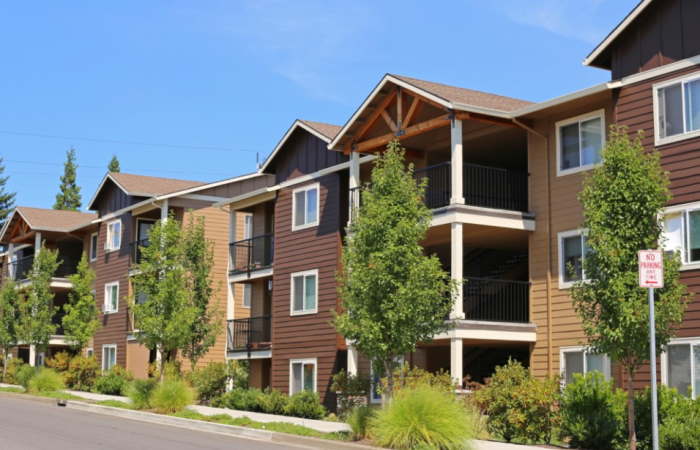The Pros and Cons of Section 8 Rentals
If you own or are planning to own a rental property, you might be curious about the idea of becoming a section 8 landlord. There are several opinions about the pros and cons of section 8. so take some time to learn about these and decide if this is right for you and if it is a worthy investment.
What is Section 8 Real Estate?
The Section 8 Housing Program has been developed by the federal government through the Development of Housing and Urban Development. The goal of the program is to provide assistance to low-income families, the disabled, and the elderly by providing them with quality yet affordable housing. It is also a form of assistance to low-income renters.
There are various requirements for potential low-income buyers or renters to qualify. However, these requirements vary from one state to another, so make sure to check with yours if you are interested. Essentially, though, these requirements are based on your income and family size.
Once approved, renters who qualify for section 8 rentals can get vouchers that pay up to 70% of the total cost of the monthly rent along with other utilities. This type of assistance is only available to US citizens or those with eligible immigration status (for non-US citizens).
Tenants who wish to apply for this type of assistance need to provide information about their income, family composition, and assets (if any) in order to qualify for section 8 rentals. Once approved, the department will determine how much assistance will be given to the qualified tenant.
Pros and Cons of Section 8 Rentals
Is becoming a Section 8 landlord right for you? Take the time to learn about the pros and cons of section 8 rentals to help you decide.
The Pros of Section 8 Rentals
Below are some reasons why you should consider investing in section 8 housing.
- Guaranteed Rent
This is the most obvious benefit that you can get as a section 8 landlord. You can ensure that a significant portion of the monthly rent will be paid for by the tenant using the voucher provided for by the government. At the very least, tenants will only cover half of the monthly rent.
Any real estate investor knows that delayed or default payments are the biggest source of financial setback in any rental property. Being guaranteed (even a percentage) of your monthly rent payment is a big plus.
- Incentive to Maintain Voucher
Low-income tenants have an additional incentive to pay their rent religiously – to be able to maintain eligibility status and keep their rent voucher. This program is actually competitive because there are so many aspiring tenants who want to enjoy this benefit provided by the government. Therefore, those who have qualified do their best to be able to maintain this assistance from the government by making sure that they meet their share of the rent.
The Section 8 housing program has the ability to revoke vouchers to any qualified tenants for a number of reasons. A tenant’s inability to pay their share of the rent is one of those reasons, along with vandalizing the property or violating their leasing terms.
- Long-Term Tenants
Another advantage of becoming a section 8 landlord is the ability to maintain longer tenancy. As mentioned above, qualified low-income tenants want to be able to maintain the benefit that they get from the government for as long as possible. They do their best to maintain this benefit in order to rent a house or any property for a minimal cost.
For the landlord, this means that your tenants will most likely be around for a long time – or until the rent voucher is revoked for whatever reason. This kind of security in terms of maintaining your tenant is beneficial for any real estate investor.
- Opportunity for Above-Market Rent
The actual value of the rent voucher provided to qualified tenants by the HUD will vary based on the fair market rent for that specific area. This value is reviewed annually and is based on a 2-bedroom property. The actual rent value can go up or down for smaller or larger properties.
For a landlord, this is a good thing because it enables you to leverage the location of your property. A lot of landlords are forced to keep their rental price low in order to stay competitive. But using the standards from HUD for evaluating rental value, you have the opportunity to price your monthly rent based on the prevailing market conditions. For example, if your property is in a prime location, you can rent it out at a rate within or above market value. This is one advantage of a section 8 rental over the open market.
The Cons of Section 8 Rentals
While there are lots of benefits to becoming a section 8 landlord, you also have to be aware of the potential risks involved. Here are some of them.
- Annual Inspections Required
The local housing authority will send personnel to conduct an inspection of your property on an annual basis. This is to make sure that your property is compliant with the standards for section 8 rentals. Failure to comply with these standards could mean you risk losing that subsidy from the government. In some cases, you will be asked to fix those issues. Make sure that you keep up with your repairs and other issues to avoid losing this benefit.
- No Initial Deposit
It is common practice for any rental property owner to collect the first month’s rent and a deposit to finalize the rental contract. However, section 8 rentals work differently since the local housing authority requires that the tenant must move in before the first month’s rent is paid. In some cases, the initial rental payment is delayed. Once it is deposited though, you can expect the rest of the rent to be paid out consistently.
- Challenging Tenants
People who qualify for section 8 rentals are often from low-income families. These are tenants who have limited access to income to provide for their family’s basic needs. Hence, there is always the risk that they won’t be able to pay their portion of the rent, or that you could be dealing with late payments.
Should You Become a Section 8 Landlord?
The decision to become a section 8 landlord is definitely up to you. Weigh the pros and cons of section 8 rentals to help you decide if this is a potentially profitable investment. If you choose to pursue this kind of investment, make sure to take note of the potential risks and come up with a solid plan to mitigate them.


